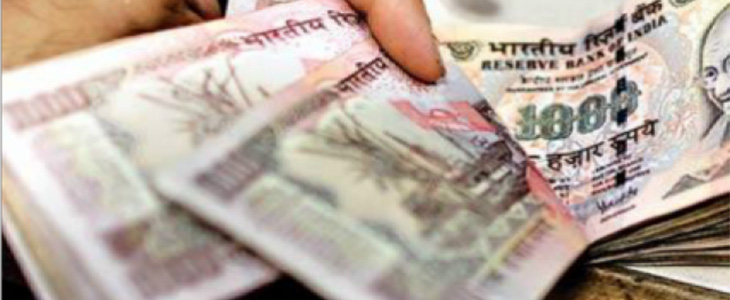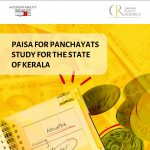
Incubating and Selling Policy – A Case Study of Demonetisation
19 December 2016
Over the last month, the demonetisation saga has been holding centre stage in India. On 8 November, the Prime Minister announced the decision of the government to declare that from that midnight onwards, Rs. 1000 and Rs. 500 currency notes would not be legal tender. The reasons given for this decision were that it would hit terrorist funding and criminal activities such as counterfeiting and that it would directly render valueless the vast stores of cash stashed away as illegally acquired proceeds of corruption, or as tax-unpaid money. While doubts were expressed about whether the move will achieve the intended results, there was no escaping the fact that the move had widespread popular support, particularly amongst the middle class, which saw at last, a redemption of the promise for effective action in this direction.
It was but natural for people to assume that the government was well prepared to handle the massive transitions that would result from this dramatic announcement. After all, all governments deserve the benefit of the doubt for their actions. During the first few days following the announcement, there were some rumblings at the inconvenience caused by it. However, the general mood of the people as they stood in serpentine queues to deposit the high denomination notes that they held, as also to withdraw money in hundred rupee notes and the new denomination of Rs. 2000, was that it was all to be endured in the national interest.
Then, matters bean to unravel.
The first signs that all was not well came about when the new Rs. 2000 notes did not fit into the ATM machines. Then, it was discovered that even when dispensed, these notes were of no use, because of the absence of small change in the form of sufficient numbers of Rs. 100 notes. Instances of deaths of people waiting in queues began to trickle in. Initially, the discordant voices did not find their way into the media; some of them did see sense in the move, whilst others were known to be overtly partial in favour of the government.
However, a month later, it is clear that the move has had unprecedented and adverse repercussions on the economy. Industries are being shut, rural markets have no buyers and agricultural produce is rotting. There is an inestimable opportunity cost in the idle time spent by countless people standing in queues waiting to retrieve their legitimately earned money from the banks. The mountains of black money that were expected to be unearthed have turned out to be molehills and neither have the cupboards of the corrupt burst open, scattering skeletons everywhere. Actions such as a renewed amnesty scheme that allows those who stashed away black money to walk away after paying fifty percent taxes on the declared income – a significant come down from the complete loss that they were to endure if high denomination notes were deemed valueless – do not seem to be effective.
In the meantime, the Prime Minister has changed the narrative by extolling the virtues of a cashless economy. The bureaucracy has been kick started into action, to artificially drive people into preferring cashless transactions over those transacted using currency. This has put the fragile cashless system under strain, leading to breakdown and claims of unreliability. Cash based transactions continue to suffer, because no currency notes of the right denominations are available. As people with no slack to endure even the slightest blip in their economic activity are caught between an inaccessible cashless system and a cash starved market place, their desperation is evident.
In the meantime, politicians of all hues and opponents of the government have been quick to point out happenings that seem to cloud the issue even further; of sudden international remittances of funds a few months before the announcement, of large purchases of land by politicians using hard currency, of illegally stashed away money being returned to banks through ‘money mules’ (those who stand in queues to hand over others money into their accounts for a commission), of companies promoting cash transactions gaining huge market shares; all insinuating that a favoured few had insider knowledge of the impending announcement and had taken advance action to avoid its repercussions or were making windfall profits from business opportunities.
If one were to step back and survey the mayhem, the big picture is that policy making has been hasty and ill thought and there has not been any leisure to seek repentance. The Government is clearly now in panic mode and decisions seem more of the knee jerk reaction type at the moment.
How could this happen?
How are policies actually made in the government? Are there not any safeguards in decision making? If something goes wrong in policy making, who is accountable?
These are questions that will be explored in greater detail, in this new blog series.





